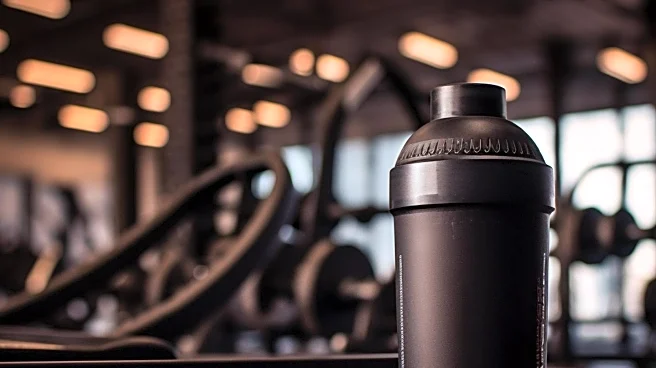What's Happening?
Dr. Ian Smith, a physician and fitness expert, emphasizes the importance of protein intake timing for those engaged in strength training. According to Smith, consuming 30% of daily protein within one hour after a workout can significantly aid muscle growth. This recommendation is based on the process where strength training causes microscopic tears in muscle fibers, which are repaired and rebuilt during recovery, leading to muscle growth. Smith suggests that if immediate post-workout protein consumption is not possible, intake within a few hours can still be beneficial. He advises sourcing protein from whole, unprocessed foods such as beans, lentils, chicken, fish, eggs, nuts, tofu, and Greek yogurt, while protein shakes can serve as a convenient alternative.
Why It's Important?
The timing of protein intake is crucial for maximizing muscle growth and recovery. Protein provides amino acids, essential for repairing and building muscle tissues. This approach can enhance the effectiveness of strength training routines, supporting individuals in achieving their fitness goals more efficiently. By focusing on protein timing, individuals can optimize their muscle recovery and growth, potentially leading to improved strength and physical performance. This strategy is particularly beneficial for those looking to increase muscle mass and improve overall fitness.
What's Next?
Individuals interested in optimizing their strength training results may consider adjusting their dietary habits to include timely protein intake. Fitness enthusiasts and athletes might explore incorporating Smith's recommendations into their routines to enhance muscle growth. Additionally, further research and discussions in the fitness community could arise regarding the benefits of protein timing and its impact on muscle development.
Beyond the Headlines
The emphasis on protein timing highlights the broader importance of nutrition in fitness and health. It underscores the need for a balanced diet that supports physical activity and recovery. This approach may also influence dietary guidelines and recommendations for athletes and fitness enthusiasts, promoting a more holistic view of nutrition and exercise.










